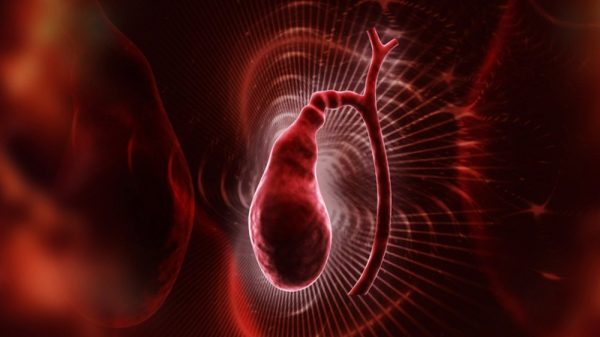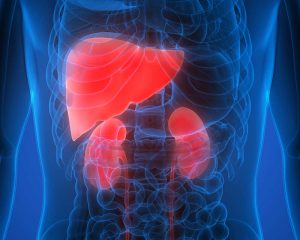Losing excess weight has numerous positive impacts on your health. But what happens if you lose weight too fast? It turns out that losing weight too quickly may have serious health repercussions. Find out the dangers of losing weight too fast and side of effects of now eating enough, and tips for losing weight safely.
Signs You’re Losing Weight Too Fast
Desiring instant results is an innate part of the human condition. However, instant results are nearly always too good to be true. Instantly reaching our goal weight is no exception. Unhealthy weight loss can have many serious side effects that can damage your health.
1. You Are Weak and Fatigued
If you are losing weight too fast, chances are you will begin to feel sapped of energy. Fast weight loss resulting from consuming fewer calories than you need deprives your body of the amino acids that it needs to build and maintain muscle. During severe calorie restriction, the body turns to its own tissues and organs in order to get the nutrients it needs. When you’re watching the number on the scale plummet during fast weight loss, it’s not just excess body fat you’re losing. The body is also catabolizing lean muscle mass to feed itself. With less lean muscle to support your body, you will feel much weaker and more fatigued.
2. You Notice Hair Loss
Hair is made of protein, and losing hair is a telltale sign that you are undernourished and likely not getting enough protein and essential amino acids. If you notice that your hair falls out more readily than before, this means you are likely not getting all of the nutrients that you need.
3. You Suddenly Develop Gallstones
Rapid, unhealthy weight loss can cause the development of gallstones in the gallbladders. The gallbladder is a small, pouch-like organ sitting below your liver. The gallbladder produces bile, a fluid that helps the body break down fat. Not eating can cause improper emptying of bile into the digestive tract. As a result, the particles in bile crystallize to form hardened stones. These stones are made of either cholesterol or bilirubin, though in the case of rapid weight loss, the stones are usually made of cholesterol.
Signs and symptoms of gallstones include severe and persistent abdominal pain, nausea, fever, and jaundice.
4. You Feel Dizzy and Lightheaded
If you are severely restricting your food intake in an effort to achieve fast weight loss, it will only be a matter of time before you start feeling dizzy and lightheaded. Restricting your food intake for long enough will eventually lead to an episode of hypoglycemia, which means that the levels of glucose in your blood are below normal. When this is the case, this means your cells are not getting adequate amounts of glucose to power their functions.
You may experience dizziness, rapid heart rate, anxiety, and shaking.
5. You Get Sick Often (and Stay Sick)
You catch the common cold and it seems to last for weeks. What gives? Well, if you’re following a very low-calorie diet, chances are you’re deficient in many nutrients and your immune system is having difficulty functioning properly. When your diet is too restrictive and doesn’t support your immune system, your body is unable to effectively fight off invading pathogens like viruses and bacteria. As a result, an infection like the common cold that should only take a couple weeks to recover from, may take a month to clear from your body.
6. Liver Damage and Inflammation
Healthy weight loss is healthy for conditions like nonalcoholic fatty liver disease. However, losing weight too quickly can backfire and actually inflict liver damage. Though the exact mechanism for rapid weight loss-induced liver damage is unclear, research suggests that extreme oxidative stress due to fat metabolism may be a trigger.
Keep in Mind
A large fluctuation on the scale is not always a sign that you’re losing weight too quickly. A large drop in your scale weight can also indicate a large loss in water weight. When you lose water weight, you may see a change on the scale of 10 pounds or more, depending on your starting weight. A change in scale weight due to water weight loss is particularly common at the beginning of a weight loss journey, especially if someone is very overweight or obese.
In some cases, rapid weight loss can be a sign of a more serious condition. Hyperthyroidism may result in unintended weight loss. Liver disease, such as advanced cirrhosis or liver cancer, can result in unexplained weight loss. If you are not dieting and eating normal amounts of food, seek medical attention to determine if there may be an underlying cause.
Additionally, if you’re concerned about your symptoms, make sure you get medical attention as soon as possible to confirm the root cause. For example, if you believe you’re having a hypoglycemic attack, it’s best to make sure that it is indeed caused by a lack of food and not by underlying conditions like diabetes.
Tips for How to Lose Weight Safely
Weight loss, for someone who is overweight, is extremely beneficial for helping to treat and reverse related health conditions. However, it is critical that weight loss is accomplished in a safe way that prioritizes your health.
1. Avoid Any Extreme Dieting Plans
Crash diets, fad diets, liquid diets, and any weight-loss plan that preaches eliminating or severely restricting critical macronutrients are almost always bad news. For example, an ultra-low-carb diet plan deprives the body of healthy complex carbs that are needed to fuel workouts, brain activity, and help facilitate muscle synthesis.
2. Balance All Macronutrients
Getting carbs, protein, and fats are vital for optimal biological functioning while promoting weight loss. However, it is critical that the macronutrients you’re eating come from high-quality sources.
3. Supplement When Needed
Even when you’re following a well-balanced diet, it’s still possible to be deficient in one or more nutrients. To support your weight loss journey and to make sure that you maintain all of your lean muscle mass, it’s a good idea to add a high-quality essential amino acid supplement to your diet. Essential amino acid supplements are available in powder form, have very few calories, and can be easily added to your coffee or shake.
Vitamin D is also a good supplement to add to your diet since it encourages healthy metabolic function, healthy cholesterol levels, and weight loss.
4. Drink Enough Water
Drinking plenty of water will help you feel energized while increasing blood flow and allowing nutrients to reach all parts of the body. Water is also important for flushing toxins out of the system and clearing out the kidney and lymphatic system.
5. Exercise
Don’t rely on calorie restriction to create a calorie deficit. Regular physical activity can ensure that you’re burning the calories you consume while also improving your metabolic and cardiovascular health. Both strength training and cardio are effective strategies for exercise.
Strength training is particularly important for facilitating protein synthesis and muscle growth. With increased muscle growth, the body has a faster resting metabolic rate and burns fat more quickly. This then eliminates the need for severe calorie restriction for weight loss.
Cardio and aerobic exercise is important for burning calories while strengthening the cardiovascular system.
High-intensity training that blends both strength training and aerobic exercise has shown particular promise in boosting metabolic rates and facilitating weight loss in a healthy way.
What to Do If You Think You’re Losing Weight Too Fast
If you’re struggling with a healthy weight loss plan, a registered dietitian or nutritionist can be an immense help in getting you on track with your diet plan. A registered dietitian or nutritionist can help you plan your diet to achieve steady weight loss while ensuring that your macronutrient and micronutrient intake is balanced to serve your specific needs.
Final Words
Even though getting to a healthy body weight is a good move for your weight, doing so too quickly can result in negative effects and health problems. Make sure you are getting enough essential amino acids to support muscle growth, calories to power your workouts, and vitamins and minerals to protect against oxidative stress.
























